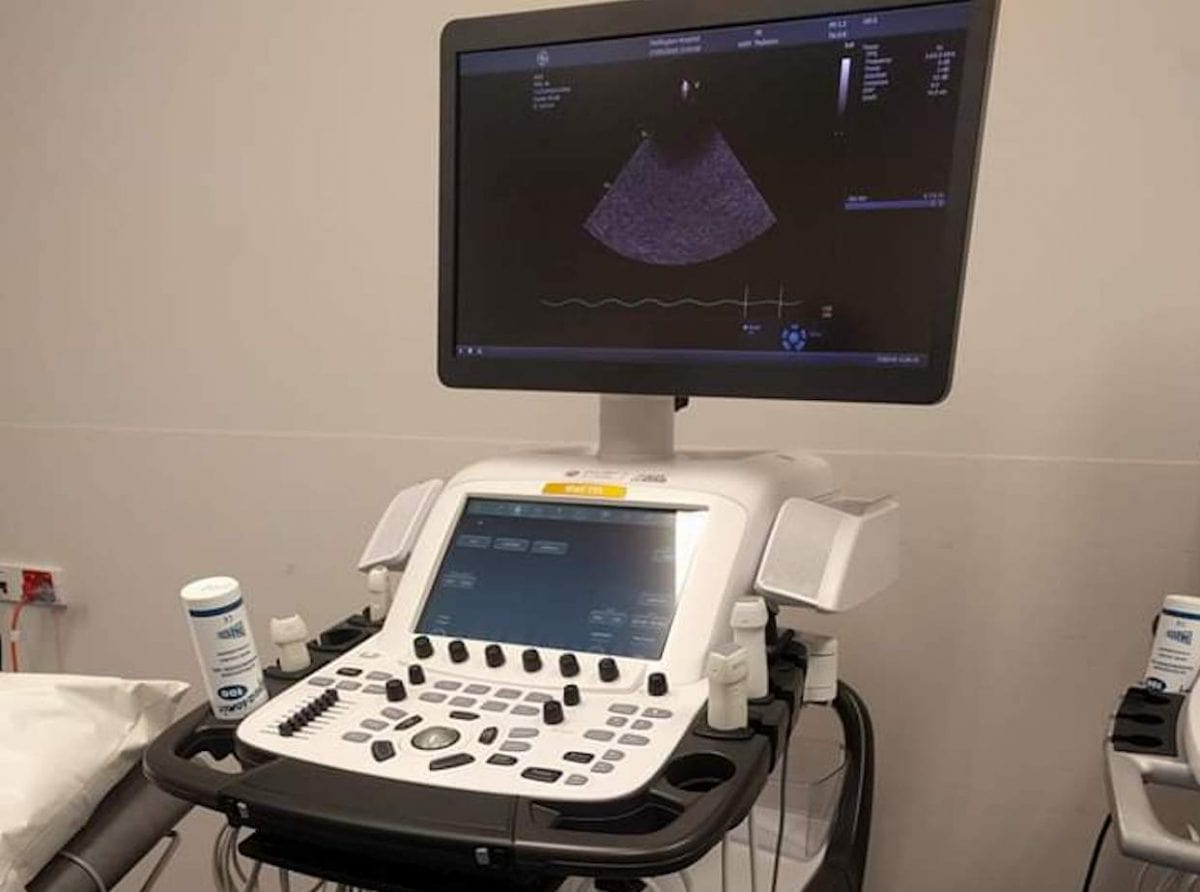Sarah Bainbridge on her work as an essential worker in a Wellington hospital during lockdown
I’ve never been afraid of hospitals. I actually find them sort of comforting. I was in a burns unit as a pre-schooler and I wonder if it imprinted on me somehow. The faintly antiseptic scent. The uniforms. I even like the smell of mashed potato that I sometimes get a whiff of from the meal trolleys.

I do ultrasound scans of hearts – called echoes – for a living. People either get it or they don’t. They look at the screen with the same interested awe as me, or they say “is this what you do all day?” And I say, “Yep, hearts all day long.”
I’m lucky, I really like my work. But it wasn’t a life-long dream – I never even knew it existed. I’d been overseas and when I came home my brother was sick and in hospital for a long time. I remember walking around the corridors thinking ‘I’ve got a science degree, I must be able to get a job here.’
But right now I’m a little afraid of hospitals, and of my job. When people come for an echo I get them to undress to the waist and lie on their side facing me. I say: “It’s like a pregnancy scan, but looking at your heart.” When I put gel on their abdomen and rest the probe on their skin they say “Is it a boy or a girl?” and I smile and say “Twins.” Often, they are nervous. Their heart rate gives it away. But usually by the time I’m finished – about half an hour later – the rate has come down. We’ve talked about the weather, their family, their plans for the weekend.
There’s no way to do an echo from two metres away, or in less than fifteen minutes. You can often smell the coffee they’ve just had, or their brand of soap. It’s hard to smile at someone behind the masks we now wear. Hopefully my tone is chirpy – I’ve tried to be more expressive with my eyebrows.
I’m very lucky to have a job, to have an income. My commute time has halved, and I can park in hospital grounds without charge. Yesterday I skipped a supermarket queue with my ID card. I have somewhere to live, and food and electricity and water and firewood.
When I drive home I go along Paekākāriki’s The Parade, to greet Kāpiti Island. I see the locals out walking in their bubbles. My bubble is me, my husband, our daughter and son, and the dog – and all the patients I’ve scanned and will scan – and all the people in their bubbles. I think about actual bubbles and surface tension, and how the bigger they get the more unstable they are.
At the end of the day I do what I can. I disinfect my pen, phone and swipe-card. I leave my work shoes behind, and change out of scrubs. I wash my face, hands and arms to the elbows. I drive home and leave my shoes in the car. I wipe down the steering wheel, the gear stick, the door handle. I go into the house by the back door and straight into the shower. The clothes I’ve come home in go into a hot wash. I’ve taken off my wedding ring and pounamu.
We’ve cleared out the spare room, but we’ve only got one bathroom. We’ve bought plastic plates and bowls so if I get sick no one has to handle dirty dishes. We’ve got a sort-of-plan except for if or when I should isolate myself from them. Lately when my daughter comes for a cuddle she says “I’m scared.” One time I asked her what I could do to make her feel better. She said “never stop hugging me.”
Online everybody is exercising, baking, busy in their gardens, and posting creative schooling ideas. It feels like they are inside a different kind of bubble, but one that is shared. I call my sister the midwife, another sister the nurse. We grumble about bookings, PPE, infection rates in overseas healthcare workers. It feels good to speak in a common tongue.
There was early rain but this afternoon the sun came out. We made paper Easter eggs for the window. There were only 29 new cases of Covid-19 in New Zealand. I hugged the kids.


